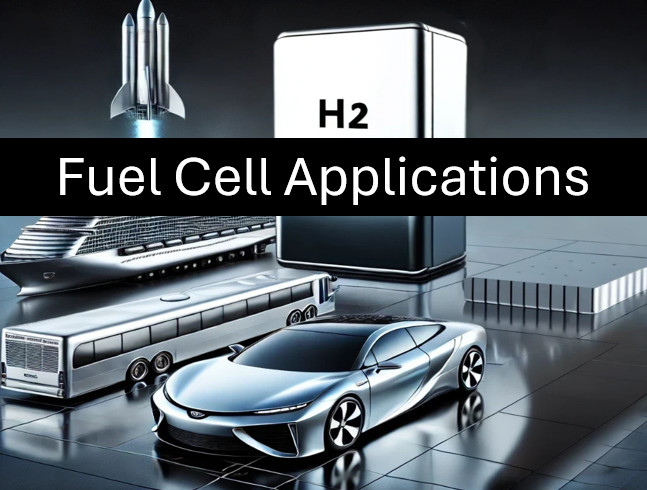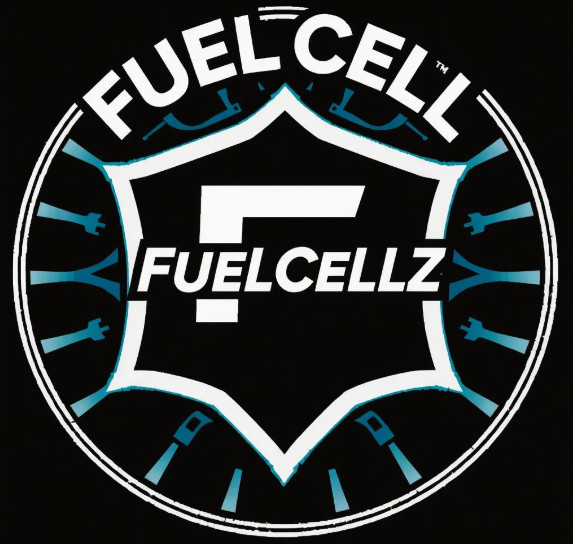Considering fuel cell technology and its applications is essential when developing a fuel cell strategy. Leading companies like Ballard Power Systems, Plug Power, FuelCell Energy, Bloom Energy, and Nikola Corporation utilize various fuel cell types and applications to address their distinct yet occasionally overlapping energy solutions. This article explores approaches, market opportunities, and how hydrogen fuel cell strategies can meet energy demands and drive cleaner growth.

Key Takeaways
- Types of Hydrogen Fuel Cell Technologies
- Ballard Power’s Focused Mobility Strategy
- Plug Power’s Green Hydrogen Ecosystem Expansion
- FuelCell Energy’s Dual-Technology Development
- Bloom Energy’s Efficiency-Driven Approach
- Nikola Corporation’s Strategic Role in Hydrogen Trucking
- Private Innovators and Emerging Strategies
- Profitability and Market Leadership Analysis
Types of Hydrogen Fuel Cell Technologies
Hydrogen fuel cells generate power efficiently and cleanly. Common strategies involve leveraging these technologies for specific applications:
Proton Exchange Membrane (PEM) Fuel Cells
- Operate at low temperatures (~80°C).
- Ideal for quick-start transportation applications.
- Require pure hydrogen for operation.
Molten Carbonate Fuel Cells (MCFC)
- Operate at ~650°C.
- Perfect for continuous microgrid power generation.
- Can use natural gas and biogas as fuels.
Solid Oxide Fuel Cells (SOFC)
- Function at high temperatures (~800–1,000°C).
- Efficient for stationary power and hydrogen production.
Emerging strategies include:
- Alkaline Fuel Cells (AFCs): Effective for specialized industrial uses.
- Phosphoric Acid Fuel Cells (PAFCs): Durable for stationary energy applications.
Ballard Power: Strategic Mobility Solutions
Ballard Power Systems focuses on PEM fuel cells to drive mobility solutions. Their hydrogen fuel cell strategy powers buses, trucks, and marine vessels, excelling in stop-and-go applications.
Strategic Opportunities:
- Diversifying into stationary power markets.
- Expanding global reach for mobility solutions.
Challenges:
- Heavy reliance on transportation sectors.
- Limited engagement in non-transport markets.
Plug Power: Building a Hydrogen Ecosystem
Plug Power leverages PEM technology in its hydrogen fuel cell strategy, developing facilities like its 15-ton-per-day liquid hydrogen plant in Georgia to dominate the green hydrogen ecosystem.
Strategic Focus:
- Vertical integration to enhance cost-efficiency.
- Expanding hydrogen refueling infrastructure globally.
Challenges:
- High capital investments in infrastructure.
- Competition from battery-electric alternatives.
FuelCell Energy: A Dual-Technology Pathway
FuelCell Energy employs MCFC and SOFC technologies in its hydrogen fuel cell strategy to serve both microgrid and industrial applications.
Strategic Strengths:
- Carbon capture technology enhances environmental benefits.
- Diversified applications for various industry needs.
Opportunities for Development:
- Increasing operational scalability.
- Innovating hybrid technology solutions.
Bloom Energy: Efficiency and Innovation
Bloom Energy’s hydrogen fuel cell strategy focuses on efficiency and scalability through SOFC technology, catering to industrial and commercial stationary power needs.
Strategic Insights:
- Expanding into diverse stationary applications.
- Enhancing R&D for cost-reduction technologies.
Challenges:
- High capital costs.
- Dependence on niche market applications.
Nikola Corporation: Hydrogen Trucking Leadership
Nikola Corporation’s hydrogen fuel cell strategy centers on heavy-duty trucking solutions, including the Nikola Tre FCEV for long-range, high-performance transportation.
Strategic Benefits:
- Establishing partnerships to build hydrogen infrastructure.
- Targeting Class 8 truck markets for competitive advantage.
Challenges:
- Infrastructure limitations.
- Competition from established automakers.
Private Innovators Driving Hydrogen Strategies
Private companies are advancing innovative hydrogen fuel cell strategies:
- HyAxiom: Developing stationary hydrogen applications.
- Wrightbus: Innovating hydrogen-powered public transportation.
- Doosan Fuel Cell America: Expanding commercial stationary applications.
Learn more about these developments at FuelCellz.com.
Profitability and Market Leadership
- Ballard Power: Leading in transportation; needs broader market strategies.
- Plug Power: Dominating green hydrogen production; scaling cost efficiencies.
- FuelCell Energy: Diversified technology portfolio; focusing on scalability.
- Bloom Energy: SOFC innovation; expanding stationary applications.
- Nikola Corporation: Targeting trucking dominance; building key partnerships.
Conclusion: The Role of Hydrogen Fuel Cell Strategies
A well-crafted hydrogen fuel cell strategy is essential for scaling clean energy solutions and meeting the rising demands of AI and industrial sectors. Companies like Plug Power and Bloom Energy are driving infrastructure growth and innovation, while Nikola Corporation focuses on advancing trucking applications. Ballard Power and FuelCell Energy highlight the importance of diversification and adaptability.
For sustained success, companies must invest in innovation, strategic partnerships, and infrastructure development. Stay informed at FuelCellz.com.
